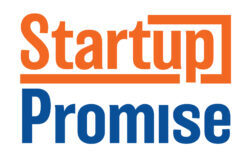- SAFE Instruments - October 10, 2023
- Startup vs Acquisition – Which is Best? - August 21, 2023
- How to Get Money to Start a Business - August 7, 2023
A S.A.F.E. is an acronym for “Simple Agreement for Future Equity” and is a financial instrument used to raise startup capital. It was popularized by the startup accelerator Y Combinator and is designed to streamline the investment process during early-stage funding rounds. A S.A.F.E. is essentially a convertible note but differs in some key aspects.
The primary purpose of a S.A.F.E. is to provide a streamlined and standardized way for startups to raise capital quickly and without the immediate need to determine the company’s valuation.
Why S.A.F.E. Instruments Are Used
S.A.F.E.s offer the startup and early-stage investors simplicity, speed, and flexibility when negotiating an investment.


Do you have a question? Ask at the bottom of this post.
One of our advisors will answer!
S.A.F.E.s are relatively straightforward compared to traditional equity investment agreements. They avoid setting a specific valuation for the startup at the time of investment, simplifying negotiations.
They expedite the fundraising process since they are standardized documents, reducing the time and cost of lengthy legal negotiations.
Unlike equity financing, which immediately assigns a valuation to the startup, S.A.F.E. agreements delay the valuation discussion until a future equity round, allowing the startup to focus on growth initially.
Startups often need help determining their exact valuation, especially in the early stages when factors like product development, market fit, and revenue still need to be determined. Because valuing a startup is very difficult, using a S.A.F.E. is an attractive option because doing so defers the need to negotiate valuation matters with investors. S.A.F.E.s postpone the valuation discussion and convert their investment into equity until a future funding round or event, such as when the startup gets acquired.
It’s worth noting that S.A.F.E. instruments may not be suitable for every situation, such as for
established companies with an established valuation; traditional equity financing may be more appropriate. Similarly, if a startup’s capital structure or business model requires complex terms that cannot be easily accommodated by a S.A.F.E. instrument, it may not be the best choice.
For startup founders, the simplified fundraising process and reduced legal costs make S.A.F.E.s very attractive. Founders can focus on essential matters before negotiating the company’s value with investors. Investors who invest through a S.A.F.E. do not have any equity ownership or voting rights. Despite these benefits, using a S.A.F.E. leaves uncertainty for the founder regarding the terms of future equity conversion with investors. And this means the founder may not know how much they are giving up to the S.A.F.E. investors.
Typical S.A.F.E. Investors include angel investors, pre-seed and seed-stage investors, and startup accelerators.
Angel Investors are individual investors who fund startups in exchange for future equity.
Pre-seed and seed-stage investors are early-stage venture capital firms that invest in startups.
Startup accelerator programs like Y Combinator often use S.A.F.E.s for their accelerator rounds. The Y Combinator’s S.A.F.E. Template was initially developed to help startups and offers a standard template on its website and guidance on how to use it.
Both startups and investors must consult legal counsel experienced in startup financing to ensure compliance with local regulations and customize S.A.F.E. terms as this type of funding instrument continues to evolve.


0 Q&A